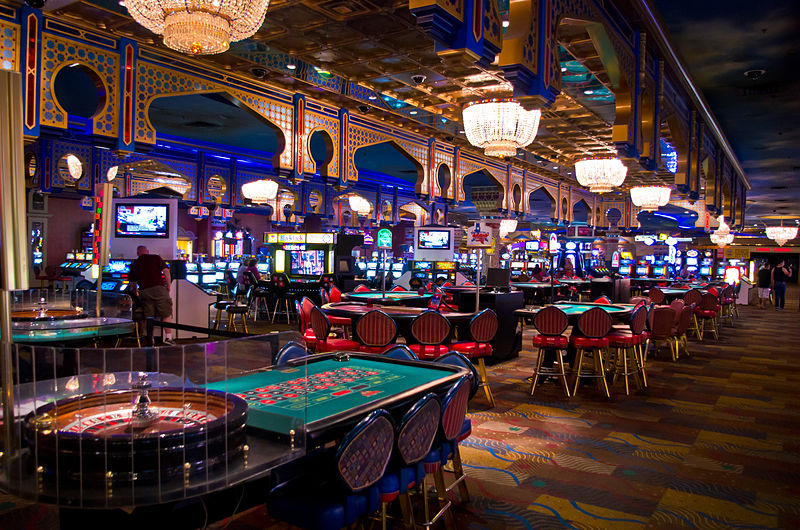
Casino games have long been a significant aspect of human culture, delivering not just entertainment but a fascinating reflection of our aspirations, dreams, and anxieties. From the spinning reels of a slot machine to the skill-based strategies of poker, these games represent a variety of human emotions and events. At their core, casino games are not just a chance to win money; they are a snapshot of life itself, where risk and reward merge and fortunes can change in an instant.
As players assemble around tables or sit in front of vibrantly illuminated machines, they engage in a ritual that transcends mere playing. These games reflect our natural desires for connection, thrill, and the search for fortune. They also unveil deeper truths about human nature, such as our relationship with fate and the excitement of risk. In exploring casino games, we uncover not only the nuances of play but also the intricate pattern of the human experience, showcasing our woven narratives of goal and reality.
The Mind Behind Gambling
Wagering is deeply rooted in human psychology, appealing to various emotions and wants. The excitement of risk-taking is a core aspect that attracts participants, whether it’s thrill of spinning a roulette or the anticipation of drawing a winning card in poker. This rush of adrenaline is frequently likened to other forms of thrill, as the uncertainty of outcomes triggers a unique psychological response. Gamblers often become captivated by the possibility of winning big, leading to an irresistible draw toward casino games.
Another, an essential component of the psychology behind gambling is the concept of hope and ambition. Participants often nourish dreams of financial freedom and the luxurious lifestyle that can follow winning. This optimism fuels their continued participation in casino games, as it provides a sense of meaning and the conviction that a life-changing win could be just one bet away. The narrative of beating the odds and finding success resonates with many, reinforcing their commitment to play and involve themselves with these games.
Lastly, social dynamics play a crucial role in gambling psychology. Casino environments are designed to promote social interaction, where players gather to share the journey of wins and losses. https://79king.training/ This shared aspect not only enhances enjoyment but also influences behavior, as individuals often mimic the actions of others in their vicinity. The social validation found in shared excitement can enhance the emotional experience, making casino games a reflection of not just personal desires but also collective engagement within the gaming community.
## The Dual Nature of Risk and Reward
Gambling activities embody the delicate balance between risk and gain that resonates deeply with human nature. 79KING COM The rush of placing a bet is often accompanied by a rush of adrenaline, as gamblers are confronted with the possibility of a huge payout, yet conscious of the possibility to lose. This twofold experience reflects a essential aspect of life: the decisions we face often come with inherent risks, and the quest for benefit can compel us to embrace risks we might not otherwise consider. In this way, casino games echo real-world decisions, enticing players to risk not just their money, but also their dreams.
The allure of big prizes and payouts fuels a wave of hope, encouraging players to envision a better future that could arise from a lucky spin of the wheel or dealing of a hand. This hope can drive individuals to engage in riskier behaviors, urging them to push their boundaries in search of monetary success. However, just as in life, the consequences of these risks can lead to both triumph and despair. The stories of both big winners and those who have suffered everything at the casino demonstrate the unpredictable nature of chance and its significant repercussions on our lives.
Ultimately, the interaction of engaging with casino games serves as a potent reminder of the nature of humanity. Every session played is filled with the tension of uncertainty, as gamblers weigh the rewards against the dangers. This interaction not only highlights the excitement that comes with gambling but also unveils the risks that come with the longing for more. As we explore the complexities of decision-making and consequence in both the gambling world and in life, we find that the search for benefit shapes our identities and journeys in significant manners.
Community and Solitude in Gambling Culture
Casino culture is a distinct mix of social engagement and personal pursuit, reflecting the tensions of human experience. Players often gather around tables, experiencing in the excitement of the game, celebrating wins, and commiserating over losses. This communal aspect is essential, as it establishes a sense of belonging and bonding among varied groups of people. Regular visitors to casinos may form friendships and develop routines, turning the casino into a second home where they feel connected to a greater community of players.
However, the allure of gambling games can also lead to loneliness. As players become immersed in the thrill of gambling, they may isolate from personal connections or neglect to engage with the world outside the gaming space. For some, the pursuit of a jackpot can overshadow genuine connections, leading to isolation. The experience of being among others yet feeling solitary is not uncommon, as the attention shifts from collective fun to the individual concerns of each player’s path.
This interaction of society and isolation creates a vivid mosaic that defines gaming culture. It highlights the intricacy of human interactions, where happiness and despair coexist. Gambling venues serve as both a refuge for social engagement and a platform for individual struggles, illustrating how intimately connected our yearning for companionship and the personal quest for fortune can be. In navigating this landscape, gamblers confront their own narratives—seeking both the thrill of the wager and the fellowship of other gamblers, eventually reflecting the broader spectrum of human experience.
